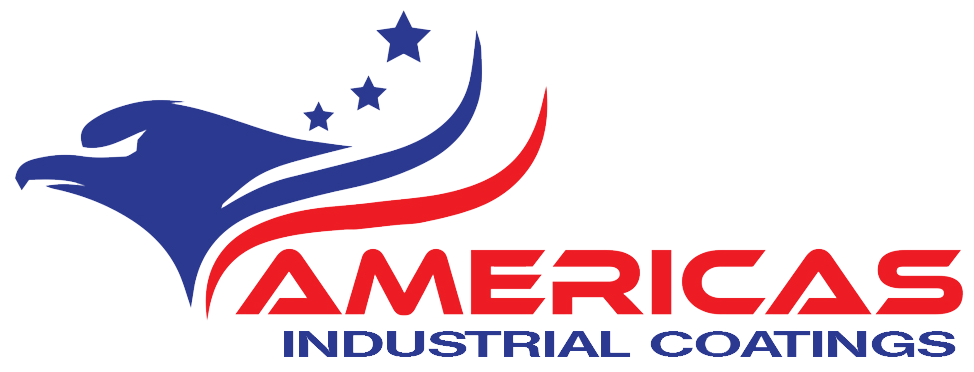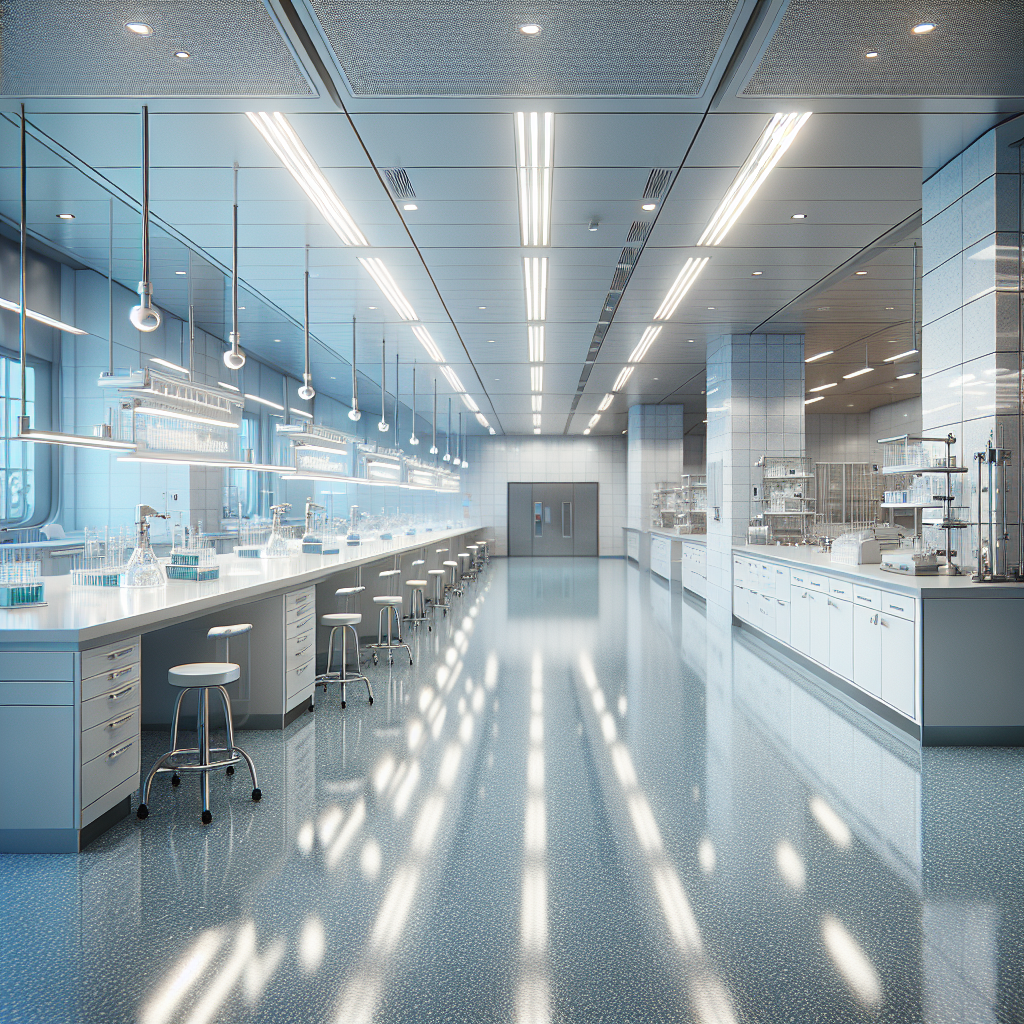When it comes to selecting the right flooring for your laboratory, epoxy flooring stands out as a top choice due to its myriad benefits. Laboratories are environments that require not only durability but also safety and ease of maintenance. Here are several reasons why epoxy floors are ideal for such settings:
- Durability: Epoxy floors are incredibly resilient, capable of withstanding heavy foot traffic, the movement of equipment, and even chemical spills without degrading. This longevity makes them a cost-effective option over time.
- Safety: These floors can be formulated to include anti-slip properties, reducing the risk of accidents in wet or hazardous conditions. Furthermore, epoxy flooring can be designed to resist chemicals commonly found in laboratory settings.
- Easy Maintenance: Cleaning epoxy floors is a breeze. Their non-porous surface prevents the absorption of liquids and contaminants, allowing for quick and efficient sanitization, which is crucial in maintaining a sterile environment.
- Aesthetic Appeal: Available in a variety of colors and finishes, epoxy flooring can enhance the overall appearance of your laboratory while also providing a clean, professional look.
These advantages make epoxy flooring not just a practical choice but also an investment in the safety and efficiency of your laboratory operations. Call Us Today for a Free Quote to learn more about how we can help you transform your laboratory space with our expert epoxy floor installation services!
Durability and Longevity of Epoxy Floors
One of the most compelling reasons to choose an epoxy floor for laboratory settings is their exceptional durability and longevity. Laboratories often face harsh conditions, including heavy foot traffic, frequent movement of equipment, and exposure to various chemicals. Epoxy flooring is specifically designed to endure these challenges, making it a reliable choice for such demanding environments.
Epoxy is a resin that, when mixed with hardeners, forms a strong bond that provides a tough, resilient surface. This bonding makes epoxy floors resistant to chipping, cracking, and peeling, which can be common issues with other types of flooring materials. Additionally, epoxy floors are impervious to moisture and chemicals, which means spills can be easily wiped away without damage to the floor.
Furthermore, the lifespan of epoxy flooring can be impressive. When properly installed and maintained, epoxy floors can last anywhere from 10 to 20 years or more. This longevity not only reduces the need for frequent replacements but also minimizes downtime for laboratories, allowing for a smoother operation.
In summary, the durability and longevity of epoxy flooring make it an ideal choice for laboratories that require a robust solution capable of withstanding the rigors of daily use.
Safety Features of Epoxy Flooring in Labs
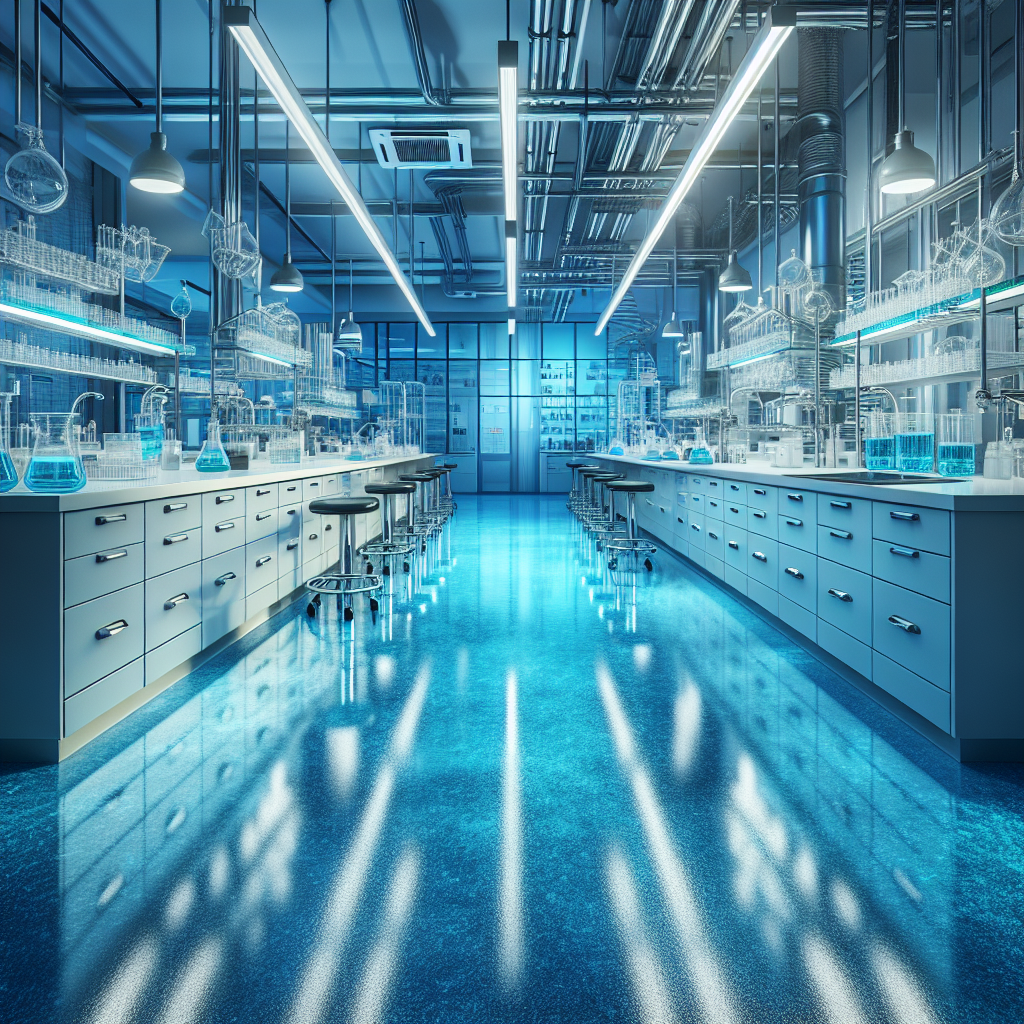
In laboratory environments, safety is of utmost importance, and epoxy floors for laboratory applications are designed with several safety features that enhance the overall security of the workspace. One of the key attributes of epoxy flooring is its non-slip surface. Laboratories often have spills of liquids or chemicals, and epoxy flooring can be formulated to include additives that improve traction, significantly reducing the risk of slips and falls.
Moreover, epoxy floors are resistant to stains and can easily be cleaned, which is crucial in maintaining a hygienic environment. The seamless nature of epoxy flooring eliminates grout lines and joints where dirt and bacteria can accumulate, promoting a cleaner and safer laboratory atmosphere.
Another safety feature is the ability to create customized markings within the epoxy surface. This allows for clear delineation of hazardous areas, walkways, and equipment zones, helping to guide personnel and prevent accidents. Additionally, some epoxy formulations include anti-static properties, which are essential in laboratories that handle sensitive electronic equipment or flammable materials.
Lastly, the durability of epoxy floors means that they maintain their integrity over time, providing a safe surface that does not degrade under the stresses of heavy use or chemical exposure. In summary, the safety features of epoxy flooring make it an excellent choice for laboratories, ensuring a secure and efficient working environment.
Easy Maintenance and Cleaning of Epoxy Floors
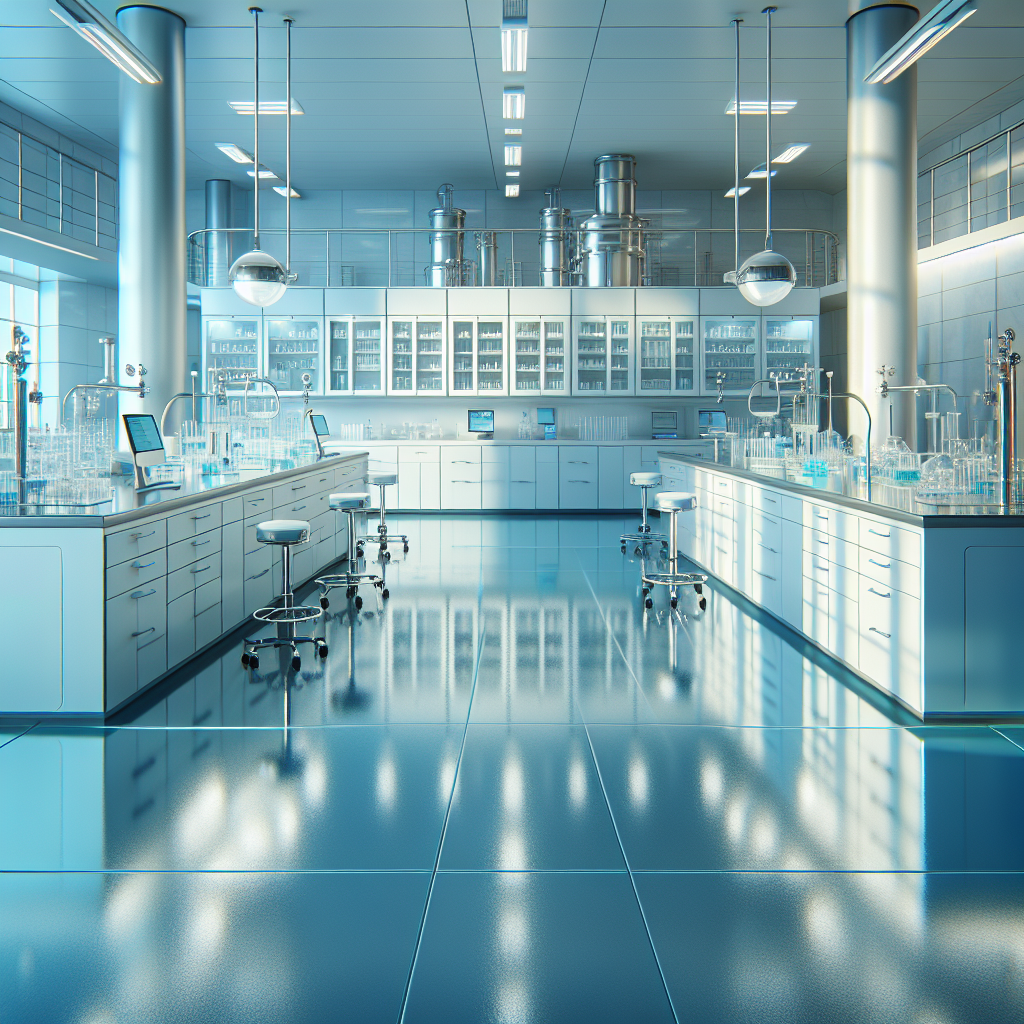
One of the standout advantages of epoxy floors for laboratory settings is their easy maintenance and cleaning. In a laboratory, where cleanliness is paramount, having a flooring solution that simplifies these tasks can significantly enhance operational efficiency.
Epoxy flooring is non-porous, meaning that it does not absorb liquids or spills, which is particularly beneficial in environments where chemicals and other substances are frequently handled. This property allows for quick and effective clean-up, minimizing the risk of contamination and ensuring a safe working environment.
For routine maintenance, sweeping or vacuuming the floor to remove dust and debris is typically sufficient. For deeper cleaning, a simple mopping with a mild detergent and water will restore the floor’s luster without the need for harsh chemicals. This ease of cleaning not only saves time but also reduces labor costs associated with floor upkeep.
Additionally, epoxy floors are resistant to stains and damage from chemicals commonly found in laboratories. Unlike other flooring materials, which can become discolored or degraded over time, epoxy maintains its appearance and integrity, requiring less frequent replacement or repair.
Overall, the combination of non-porous surfaces, resistance to stains, and straightforward cleaning procedures makes epoxy flooring an ideal choice for laboratories seeking to maintain high standards of hygiene and efficiency.
Cost-Effectiveness of Epoxy Flooring Solutions
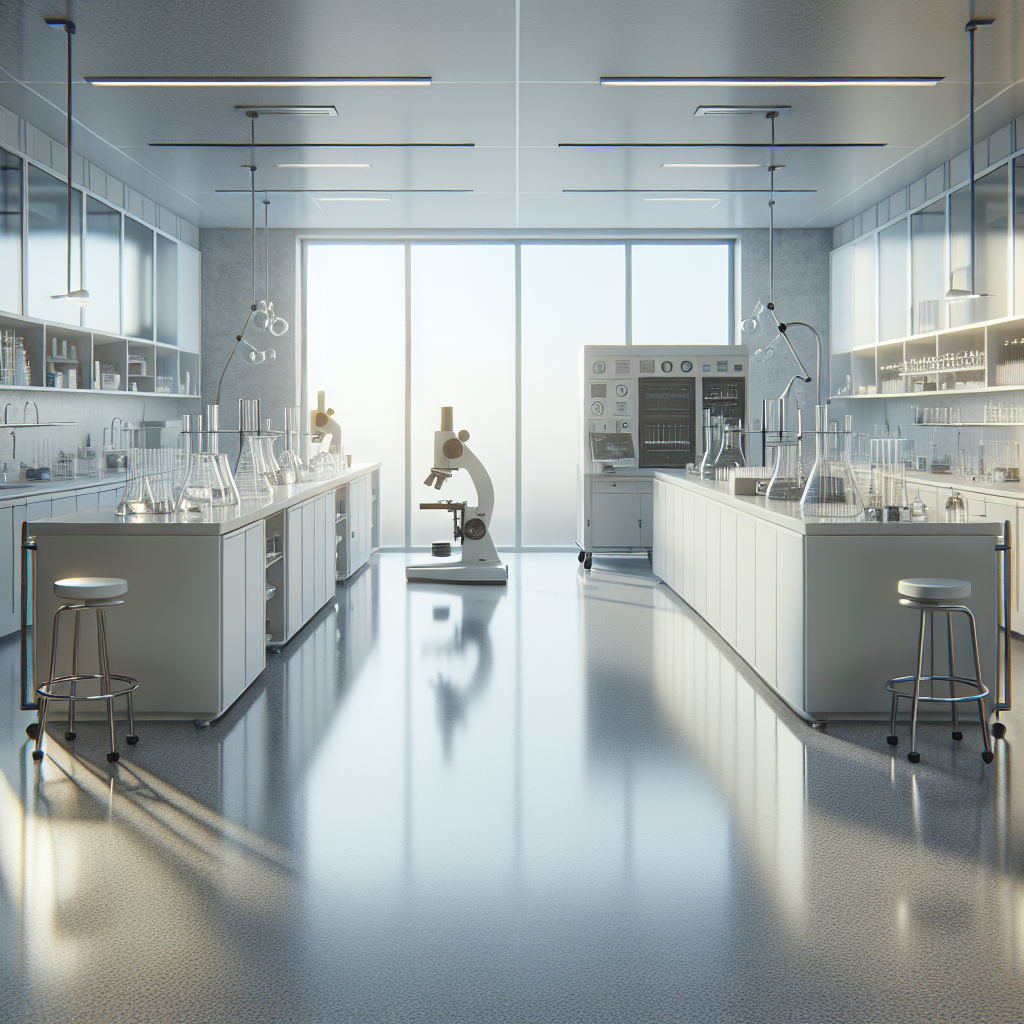
When evaluating flooring options for a laboratory, cost-effectiveness is a crucial factor. Epoxy flooring stands out as a financially savvy choice, providing a long-lasting solution that offers exceptional value over time.
While the initial installation cost of epoxy floors may be higher than some traditional flooring materials, their durability and longevity ultimately lead to significant savings. Epoxy floors can last up to 20 years or more with proper care, far outpacing the lifespan of vinyl or carpet options, which may require more frequent replacement.
Moreover, the maintenance costs associated with epoxy flooring are substantially lower. As mentioned earlier, these floors are easy to clean and resistant to damage, meaning less money spent on repairs and maintenance supplies. This not only allows laboratories to allocate resources more effectively but also reduces downtime associated with floor maintenance.
Another aspect of cost-effectiveness is the energy efficiency of epoxy floors. Their reflective surface can enhance lighting in the laboratory, potentially reducing electricity costs. By improving visibility, epoxy floors can also contribute to a safer working environment, minimizing accidents and associated expenses.
In essence, while the upfront investment in epoxy flooring may seem considerable, the long-term benefits—including durability, low maintenance costs, and energy efficiency—make it a smart financial decision for laboratories focused on sustainability and cost control.
Choosing the Right Epoxy Floor for Your Laboratory
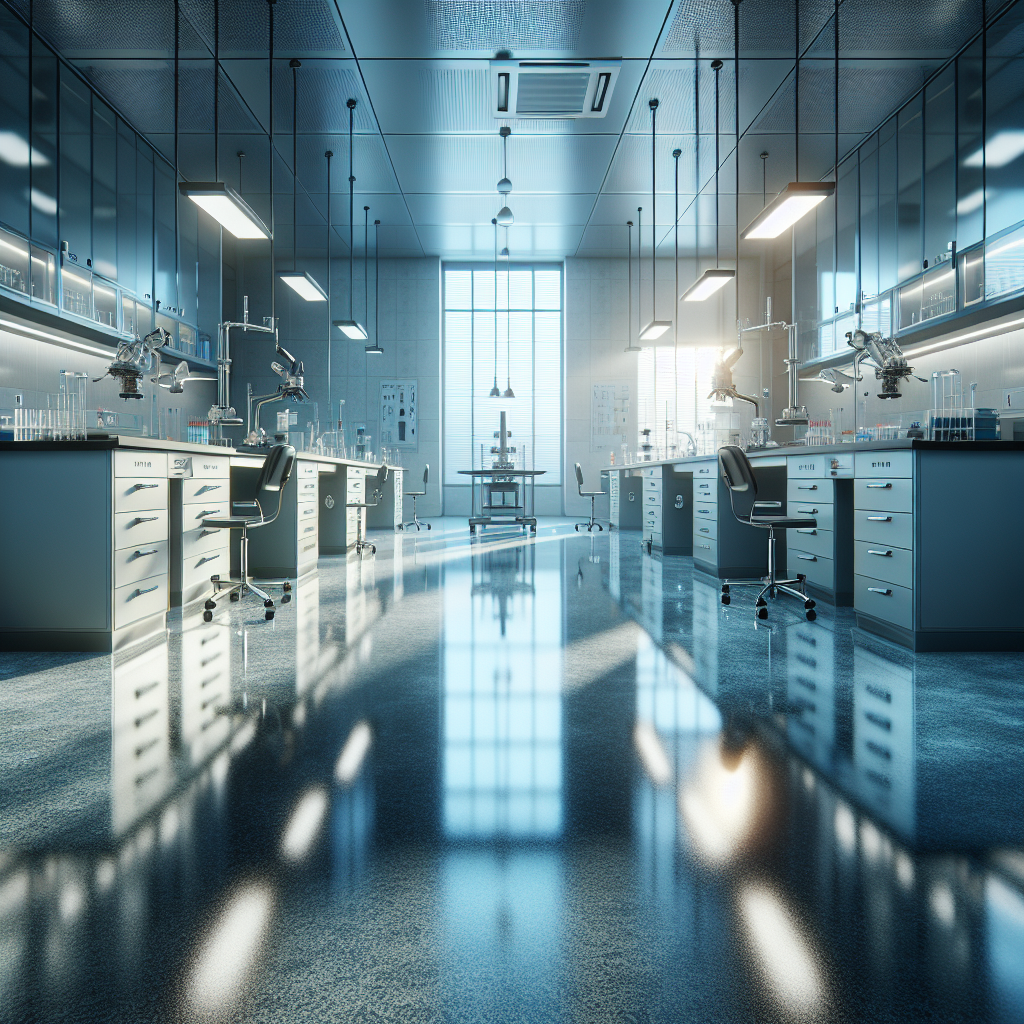
Selecting the appropriate epoxy floor for your laboratory involves careful consideration of various factors to ensure the flooring meets your specific needs. First and foremost, assess the nature of your laboratory activities. Different laboratories—such as chemical, biological, or analytical—may require unique flooring properties.
One key factor to consider is the chemical resistance of the epoxy. Laboratories handling corrosive substances or solvents should opt for a high-performance epoxy that can withstand spills and stains without degrading. Additionally, consider the slip resistance of the flooring, especially in areas prone to spills. Textured epoxy options can enhance safety and prevent accidents.
Another important aspect is the thickness and application method of the epoxy. Thicker epoxy layers can provide better durability and impact resistance, making them suitable for high-traffic areas. It’s also advisable to consult with professionals who specialize in epoxy floor installations to ensure that the application is done correctly, maximizing the floor’s lifespan.
Furthermore, you should look into aesthetic options that align with your laboratory’s branding or functionality. Various colors and finishes are available, allowing you to create a professional and visually appealing environment.
Ultimately, working with a knowledgeable provider can simplify the decision-making process, ensuring that your laboratory receives the best flooring solution. Call Us Today for a Free Quote to discuss your specific needs and explore the best epoxy flooring options for your laboratory.
